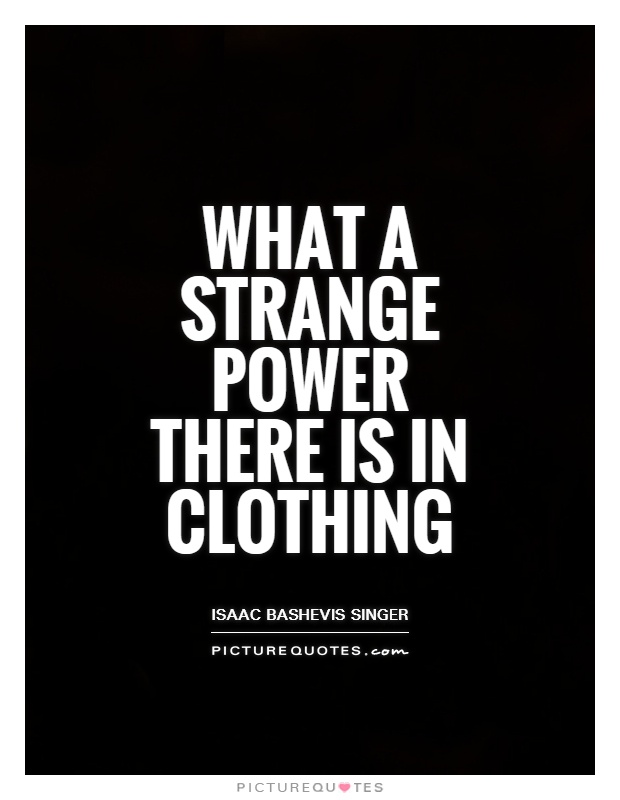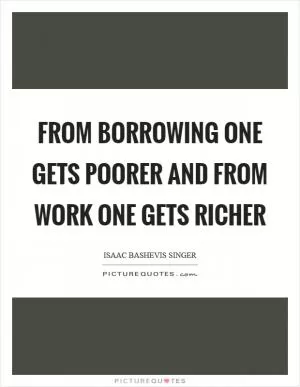What a strange power there is in clothing

What a strange power there is in clothing
Isaac Bashevis Singer, the renowned Polish-American writer and Nobel laureate, was known for his vivid storytelling and deep exploration of human nature. In many of his works, Singer delved into the complexities of human relationships, the struggles of the human condition, and the power of tradition and culture. One recurring theme in Singer's writing is the significance of clothing and its ability to shape and define individuals.In Singer's stories, clothing often serves as a symbol of identity, social status, and cultural heritage. The characters in his works are often described in great detail, with their clothing playing a crucial role in conveying their personalities and backgrounds. For Singer, clothing is not just a practical necessity, but a powerful tool that can influence how others perceive us and how we perceive ourselves.
One of Singer's most famous stories, "Gimpel the Fool," explores the theme of clothing in a poignant and thought-provoking way. In the story, Gimpel, a simple and gullible man, is constantly mocked and deceived by the people in his village. Despite his naivety, Gimpel is known for his honesty and kindness. Throughout the story, Gimpel's clothing serves as a symbol of his innocence and vulnerability. Despite being ridiculed and mistreated, Gimpel remains true to himself, never allowing the harsh words and actions of others to change who he is.












 Friendship Quotes
Friendship Quotes Love Quotes
Love Quotes Life Quotes
Life Quotes Funny Quotes
Funny Quotes Motivational Quotes
Motivational Quotes Inspirational Quotes
Inspirational Quotes